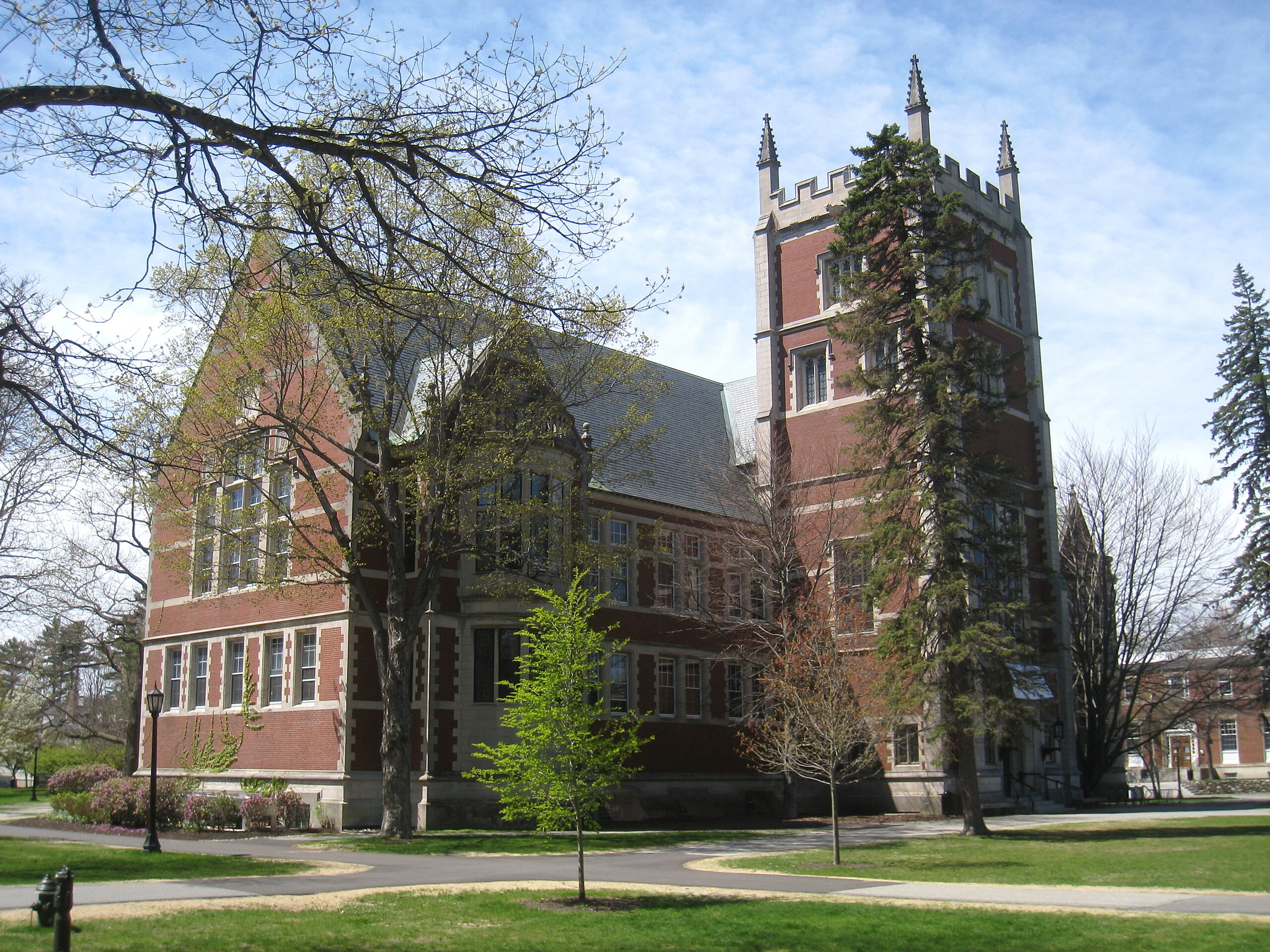Cornell University is an Ivy League institution nestled in the natural beauty of upstate New York. Its world-renowned programs in engineering, architecture, and hospitality, among others, are just a few reasons that many prospective students dream of attending Cornell.
Like every other highly selective university and Ivy League member, Cornell has become increasingly competitive through the years. It’s important to understand what Cornell is looking for and what you can do to increase your chances of admission. Read on to learn more about Cornell and about what it takes to get in.
How to Get into Cornell: Table of Contents
- When to Apply to Cornell
- How Hard Is It to Get into Cornell: Early Prep
- How Do You Actually Get into Cornell: The Application
- Class Profile
- What Makes Cornell Unique?
When to Apply to Cornell
It’s important to start early so that you can prepare the strongest application possible. Cornell’s application period opens on August 1, just before most prospective students begin their senior year of high school. However, students hoping to be admitted to Cornell should begin the application process well before that, compiling as much relevant information as possible ahead of time and working on their essay drafts.
Cornell Deadlines
Cornell’s individual application deadlines correspond to the typical Early Decision and Regular Decision timeline. Cornell’s application deadlines are:
Early Decision: November 1
Regular Decision: January 2
These are the specific deadlines for the 2023-24 college admissions cycle. These deadlines may vary slightly in future years. Always check the university’s website for the most up-to-date information on deadlines.
Cornell does not offer merit-based scholarships, so they are not a part of application timeline considerations. All aid is need-based. Students applying ED must submit their financial aid requirements by November 15, and RD applicants have a deadline of February 15 for the 2023-24 application cycle.
Early, Rolling, and Regular Decision
Most colleges and universities offer different application types, such as Regular Decision, Early Decision, Early Decision II, and Early Action, though these options will vary by institution. Early Decision is a binding application option — if you are admitted Early Decision, you must enroll at that school and withdraw all other applications. Early Action is a non-binding early application that does not require you to enroll if you are admitted. Regular Decision is a non-binding option that comes later than Early Decision and Early Action and is typically more competitive.
Cornell University does not offer Early Action, however. Cornell’s admission options are Early Decision and Regular Decision. Cornell University only offers Early Decision but not Early Decision II, which is a later option for students to apply for binding admission. Applying Early Decision may increase a student’s chances of admission since they are committing to attending if accepted.
Rolling admission is another option available at some colleges and universities that is non-binding and does not adhere to strict deadlines. Cornell does not offer rolling admission.
Waitlisted Applications
If you apply to Cornell University Regular Decision, there are three possible decision notifications you may receive: accepted, denied, or waitlisted. When applying to Cornell, you must choose which individual school or college you want to apply to. According to the Cornell admissions office, certain schools or colleges offer their applicants spots on the waitlist, whereas others do not.
The university typically wants to admit waitlisted students but lacks the space to do so. Students who are waitlisted can choose to accept or deny their spot on the waitlist. If they accept, there is a small possibility they will be admitted before the start of term — the Cornell waitlist acceptance rate for the Class of 2026 was 4.70%.
Deferrals
A student applying Early Decision to Cornell University will receive one of three possible admission decisions: accepted, denied, or deferred. When a student is deferred, that means the admissions committee is waiting until the Regular Decision round to decide if the student will be admitted. This is often because additional information is needed, like the student’s grades from the first semester of their senior year.
It helps to know what to do if you have been deferred. Typically, you send the university additional information — such as first semester senior year grades and a letter of continued interest — that may add to your application. Students who are deferred should always check with the admissions office to see what additional information they need and be sure to follow all directions: Not every school will accept letters of continued interest.
How Hard Is It to Get into Cornell: Early Prep
So, you’re probably wondering how hard it is to get into Cornell. As an Ivy League University, Cornell is consistently one of the most competitive and highly selective universities in the country, with an admission rate below 10%. So you know what to expect, here are Cornell’s admission rates in recent years:
- Class of 2025: 8.70%
- Class of 2026: 7.26%
- Class of 2027: 7.9%
Preparing to apply to Cornell University requires making yourself the best applicant you can be in the classroom, your activities, and your community. This means getting an early start on building your profile — Cornell, like all colleges and universities, will evaluate your academic performance and activities starting from ninth grade.
Build Your Profile
What does Cornell look for in an applicant? Cornell is looking for bright, curious, and motivated students who will help build the vibrant and diverse campus community.
To be a competitive applicant to Cornell, prospective students should start building their profile as early as possible. Your profile includes everything about you as an applicant: your academic background and history, your extracurricular involvement, and the contributions you have made to your school and community.
Schools like Cornell look for “pointy” students who demonstrate deep engagement and growth in their field(s) of interest through their high school course selection and extracurricular activities. Students who get an early start on building their profile have more time to become pointy by building on their interest(s).
Students applying to Cornell should consider which Cornell school or college best aligns with their academic profile. Cornell’s nine schools and colleges are:
- College of Agriculture and Life Sciences
- College of Architecture, Art, and Planning
- College of Arts and Sciences
- Cornell SC Johnson College of Business
- Cornell Ann S. Bowers College of Computing and Information Science
- College of Engineering
- College of Human Ecology
- School of Industrial and Labor Relations
- Cornell Jeb E. Brooks School of Public Policy
Cornell University looks for multitalented and involved students who have made significant contributions to their high schools and communities. Applicants should highlight their involvement in their applications and thread connections to how their interests make them a good fit for Cornell.
Visit the Campus and a Class
Visiting campus is one of the best ways to thoroughly get to know the vibe of the place and visualize how you would fit in. Cornell offers prospective students the opportunity to take a self-guided tour of campus via a smartphone app. The Welcome Center staff is available to answer questions and provide information.
Prospective students can also register for a student-led campus tour and/or an admissions information session. Spaces are limited for the student-led tours, so it’s best to register as early as possible. Both options present good opportunities to speak to students and staff about campus life, which can give you an even more complete picture of Cornell.
For students who are not able to visit campus in person, Cornell also offers a virtual tour and on-demand admissions information session videos. Interested in observing a class at Cornell? Check with the school or college you’re interested in to see if opportunities are available. For example, the Cornell Peter and Stephanie Nolan School of Hotel Administration within the College of Business allows prospective students to sit in on a class.
Connect With a Student
Another great way to learn more about a university is by connecting with a current student. If you register for a student-led tour, you can chat with your tour guide before or after the tour, so don’t be shy! Individual schools and colleges may offer additional opportunities to connect with students. The College of Arts & Sciences, for example, has an ambassador program that connects prospective students with current students in the college.
Learn About Any Student Experiences
Speaking to current students about their experiences can also help you determine whether Cornell is a good fit for you. As we previously mentioned, the student-led tour is a good opportunity to talk to a student, and you may have additional opportunities through Cornell’s schools and colleges. Additionally, the admissions office will help connect you to a current student so you can ask direct questions and hear firsthand experiences of what being a Cornell student is like.
How Do You Actually Get into Cornell: The Application
Cornell is looking for the best and brightest to join its ranks. To be considered for admission, you must apply and meet all application requirements including submitting the Common Application, the Cornell writing supplement, your high school transcript, a counselor letter of recommendation, teacher evaluations, a school report, and optional standardized test scores. You may need to submit a portfolio and/or additional materials depending on the program to which you’re applying.
GPA Requirements
Cornell does not report the GPAs of admitted students. However, Cornell’s Common Data Set for the class of 2026 shows that of the applicants who reported their high school class rank, 82% graduated in the top 10% of their class. Because of Cornell’s status as an Ivy League and its high selectivity, applicants need a strong GPA to be competitive for admission.
SAT and ACT Scores
Cornell University is test-optional through the 2023-24 admissions cycle. This means that students do not have to submit SAT or ACT scores, but admissions will consider them if they are submitted. The College of Agriculture and Life Sciences; College of Architecture, Art, and Planning; and the College of Business are currently test-blind, meaning that standardized tests are not considered at all in the admissions process.
During the 2022-23 admissions cycle, 43% of admitted students submitted SAT scores and 17% submitted ACT scores. We always advise students to submit strong test scores to test-optional schools. Students who apply to Cornell after the 2023-24 admissions cycle should check for updates to the standardized testing policy.
Personal Statement
The Common Application personal statement is one of the most important qualitative factors of the application process. The seven Common App essay prompts range from specific to very open-ended, allowing students to write about virtually anything. The personal statement is an opportunity for applicants to introduce themselves to the admissions committee beyond the numbers and other hard factors in their application.
Essays
In addition to the personal statement, Cornell University includes several additional Cornell essay supplements. All applicants must respond to the Cornell University Essay Question in 350 words or less. Each undergraduate school and college has additional required essays for students applying to their programs.
The Cornell University Essay Question for the 2023-24 admissions cycle is:
In the aftermath of the U.S. Civil War, Ezra Cornell wrote, “I would found an institution where any person can find instruction in any study.” For over 150 years, Cornell University has remained deeply committed to Ezra’s vision. Explain how your life experiences will help inform your contributions to a learning community devoted to “… any person … any study.” We encourage you to think broadly about your life experiences, including how local (e.g., family, school, neighborhood) or global communities you’ve been part of have helped shape your perspective.
Letters of Recommendation
Letters of recommendation provide the opportunity for admissions officers to learn more about the student from the perspective of counselors and teachers. Cornell requires one letter from the student’s school counselor, college counselor, headmaster, or principal, as well as two teacher recommendations that speak to the applicant’s academic strengths and contributions.
Admission Interviews
Admission interviews are not required for students applying for undergraduate admission. However, applicants may schedule an informational meeting with a volunteer from the Cornell Alumni Admissions Ambassador Network (CAAAN) who resides in their local area. This is optional and does not have an impact on your admission status. Applicants may request this meeting in the Common App during the application process or on the Cornell application status page after their application is submitted; however, these meetings are not guaranteed.
Contribution to the Cornell Community
Cornell students make valuable contributions to the school community through their wide variety of interests and expertise. As a Cornell University applicant, you must showcase your academic and extracurricular interests in your application.
Ultimately, the office of undergraduate admissions seeks to put together a well-rounded and diverse class of students. They consider each applicant’s soft factors in several ways, including how those factors will contribute to the campus community. This is part of why it’s important to be specific in the Cornell University supplement. Tell admissions officers what excites you about Cornell and how you plan to contribute to the campus community as a Cornell student.
Class Profile
So, how many people apply to Cornell? The number of applicants fluctuates from year to year, of course, but the stats for the class of 2027 will give you some idea of what to expect. Cornell University received 67,846 applications for fall 2023 and ultimately admitted 5,358, though not all students accepted their spot in the class. This was also a diverse group, with 55.7% identifying as students of color and first-generation students making up 19.5% of the class.
What Makes Cornell Unique?
So, what makes Cornell University unique? Among other things, Cornell is a private land-grant university, meaning that the state of New York provides Cornell with financial support. Its status as a land-grant institution means that Cornell University, despite being a private school, contributes its research and innovation in a way that benefits the state. Cornell is the only Ivy League university that is also a land-grant university.
Additionally, Cornell is world renowned for its commitment to climate change research and sustainability. It’s also the only elite school in the U.S. to offer a four-year program in hotel administration — in fact, it’s one of the top hospitality schools in the country.
Cornell may be the right fit for applicants looking for a rigorous Ivy League education in a beautiful, small city setting. Students enjoy all that Cornell has to offer along with the spectacular natural wonders of New York’s Finger Lakes region.
Admissions Counseling
Students seeking admission to highly selective schools may find it beneficial to work with a private admissions counselor. Experienced counselors understand the entire college admissions process and can guide students through each step. At the same time, they can demystify the process for students and families and keep them on track as they work toward their college admissions goals.
It’s important to look for a college admissions counselor who has experience working in admissions committees. Since they were a part of the decision-making process, they have firsthand knowledge of what admissions committees look for when evaluating applications. At IvyWise, our college admissions counselors are all former Deans and Directors of admission at some of the top schools in the U.S. and internationally. They have read thousands of college applications and know what it takes for students to stand out. Get started today by scheduling an Initial Consultation.




